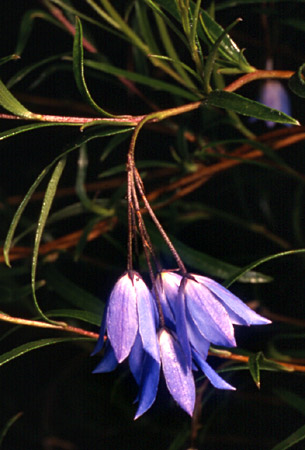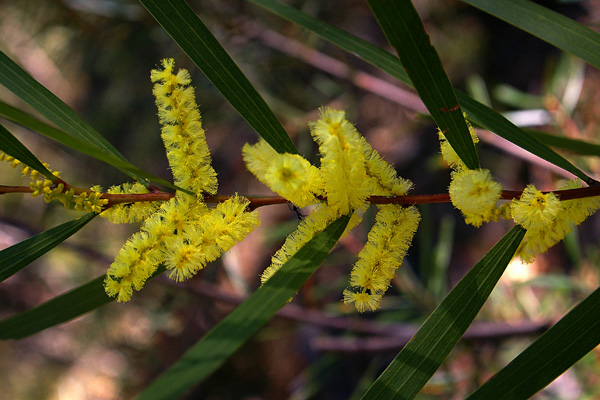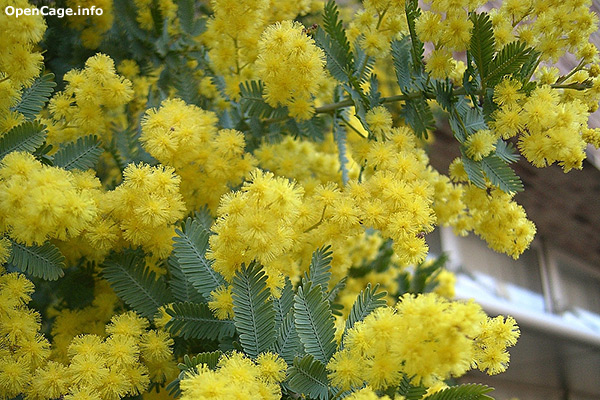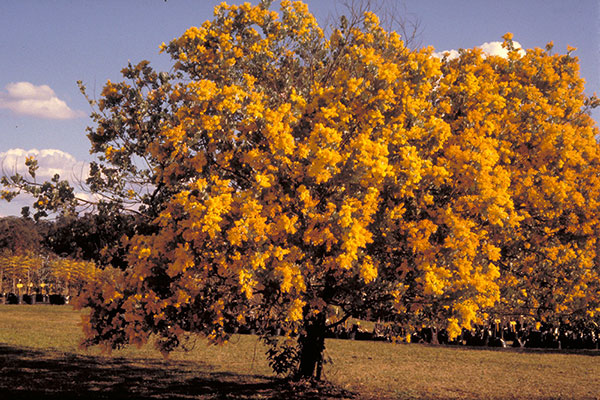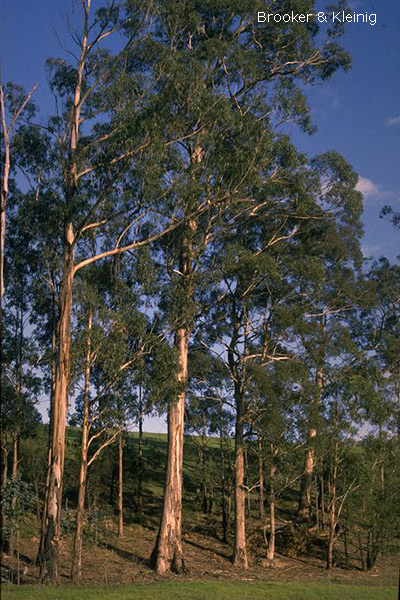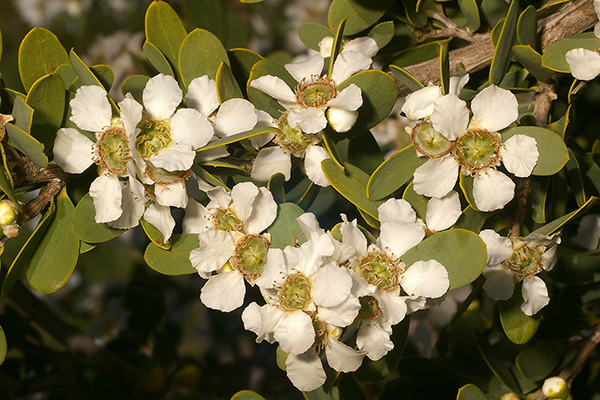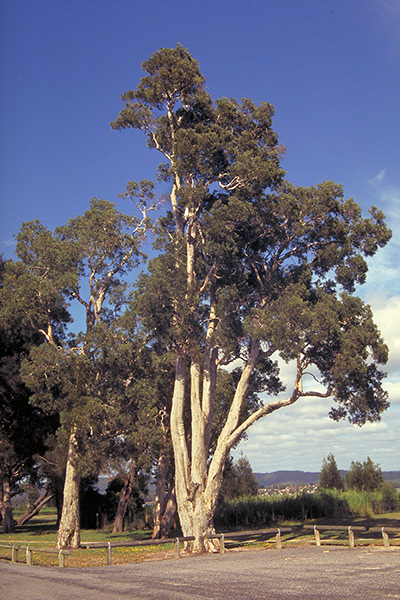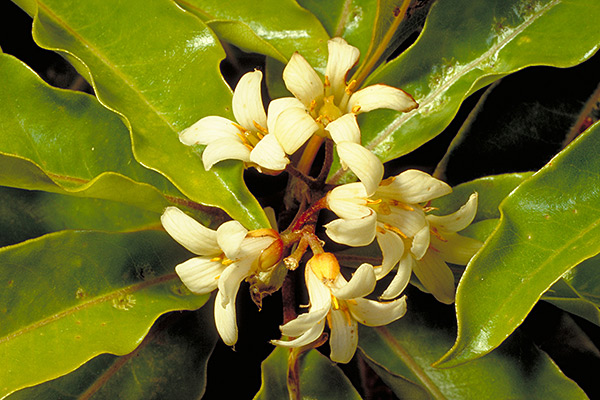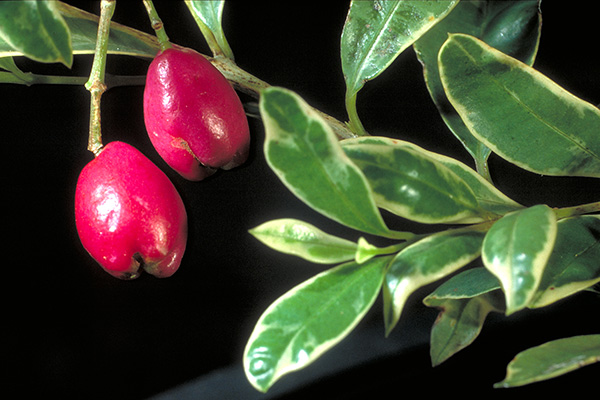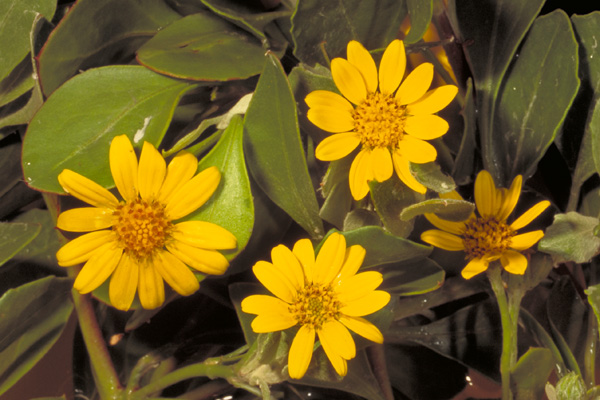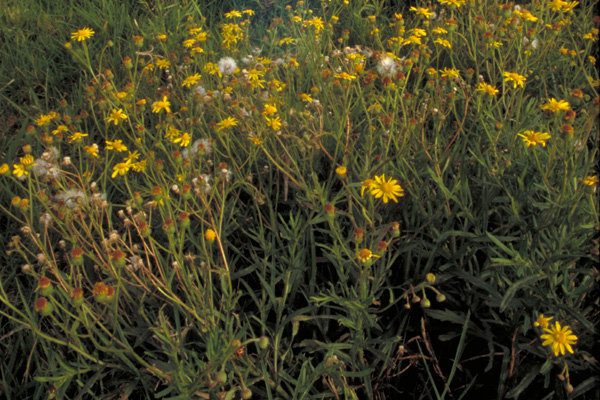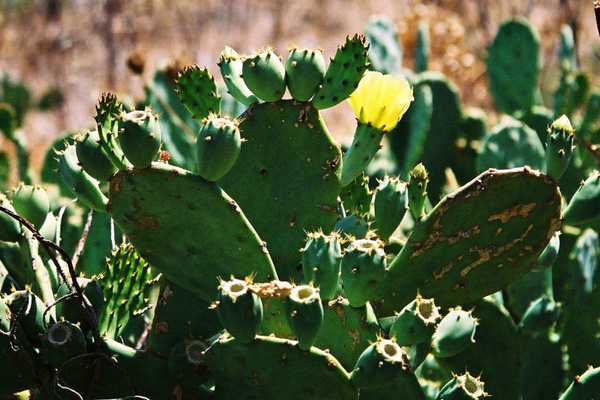Here is a beautiful and emotive book, published several years ago, called the Spirit of the Garden, by Trisha Dixon.
‘Gardens can be formal or wild, serene or ostentatious, native or exotic, colourful or monochrome’, according to Trisha Dixon. ‘If we like a person, we will probably like their garden’.
About this book, Spirit of the Garden

This is a beautiful book filled with emotive full-page photos of gardens and landscapes. The images are interspersed with pages of text that delve thoughtfully into the many of the aspects of design that give gardens aesthetic spirit and life. The eloquentand iinspirational text is sometimes complex, even philosophical. But there’s a pleasure in rereading sections to understand the full meaning.
Inspiration quotes from theauthor and other designers
There are many excellent statements by the author and quotes from many well-known designers; a selection of those that specifically caught my attention are reproduced below.
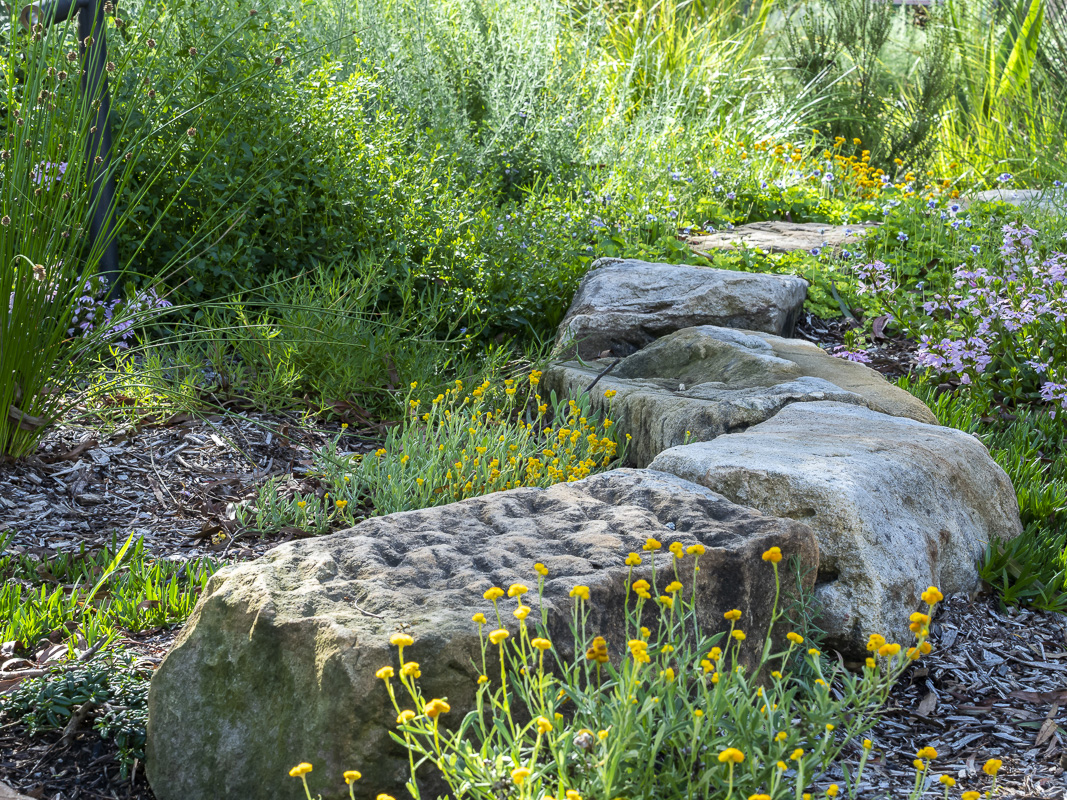
‘Joy of Discovery’
The joyfulness in finding a hidden place is perhaps instinctive – even in the gardens of others, if it is a garden unknown, or little visited, in some way an enigma, inviting discovery. The delicate work of uncovering more than surface beauty is the joy of discovery in a garden, be it in others’ gardens or in your own creation.
South Eveleigh garden, image Heather Miles
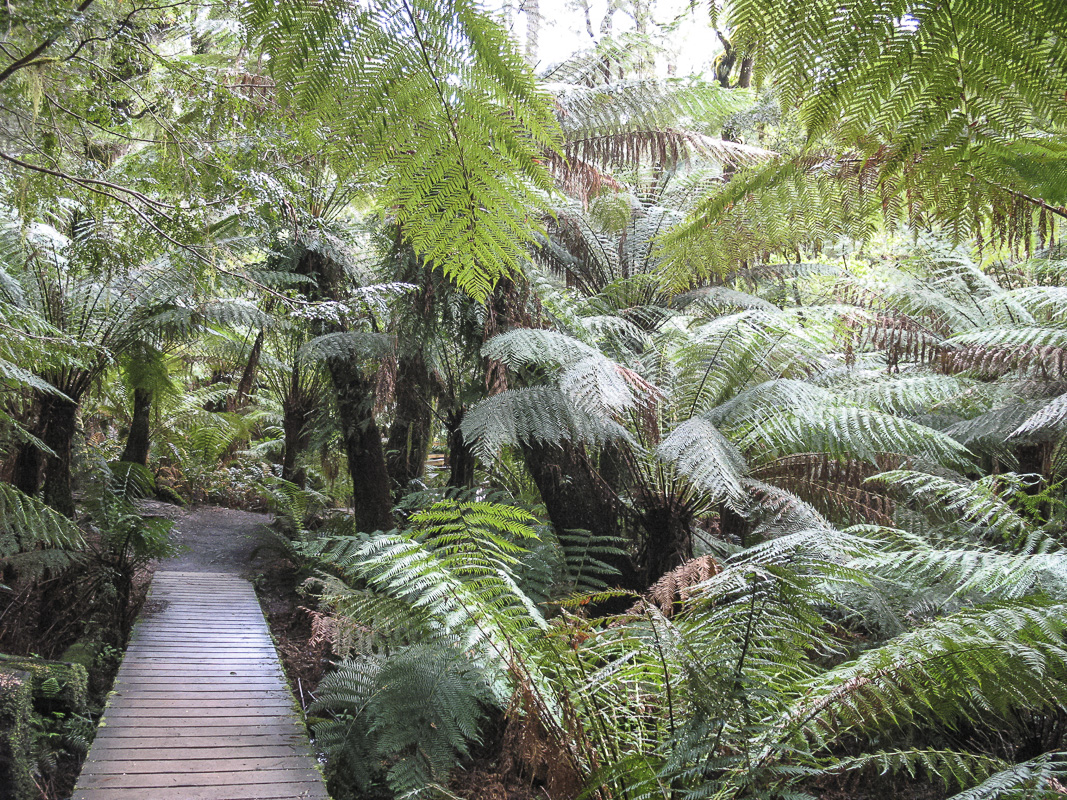
‘Simplicity’
Both Gertrude Jeckyll and Sylvia Crowe echoed these sentiments, stating: “A collection of choice plants does not make a garden any more than a selection of choice words, a poem.” It is the editing out of what we see rather than the adding in, that can have such a calmative effect. So hard to do in a garden, but so important.
Dicksonia forest, Otways, image Lawrie Smith
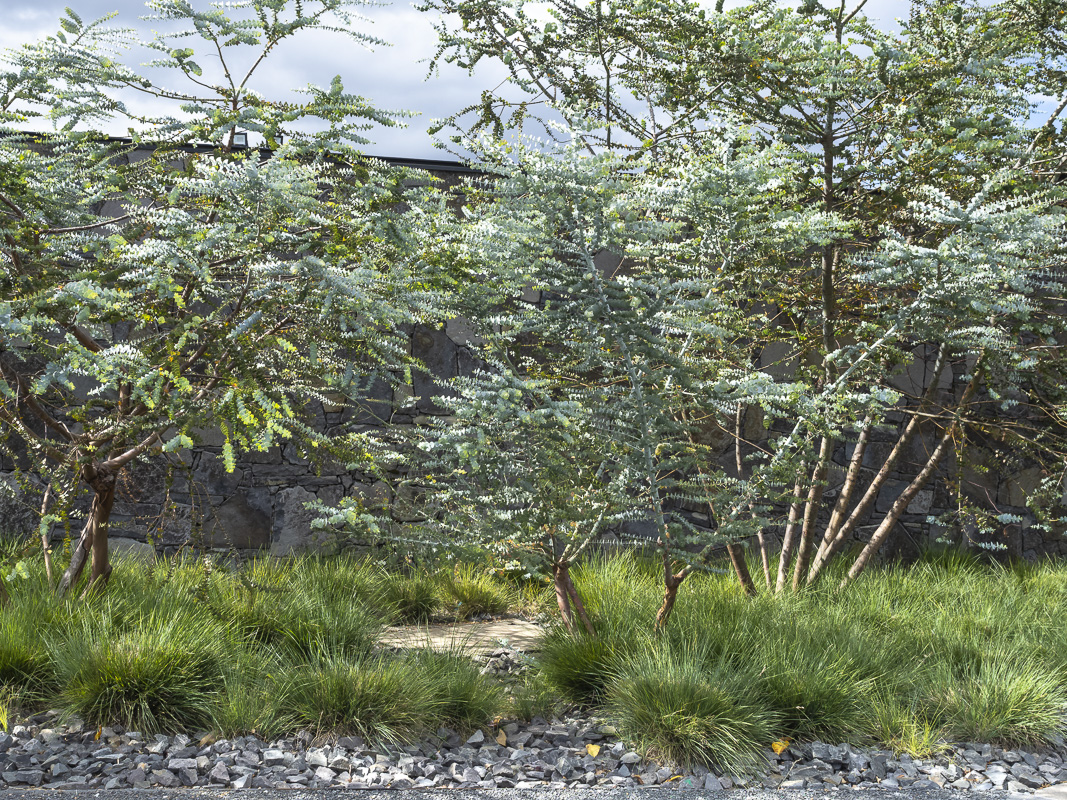
‘The Poetics of Space’
Edna Walling’s gardens were all about space. More about space than plants, which were always chosen for their simplicity, not for their ‘look at me’ attributes. She eschewed all variegated or specimen types in favour of simple plantings, and preferred to use a mass of just one species, rather than a statement that that would focus the eye.
National Arboretum, ACT< image Heather Miles
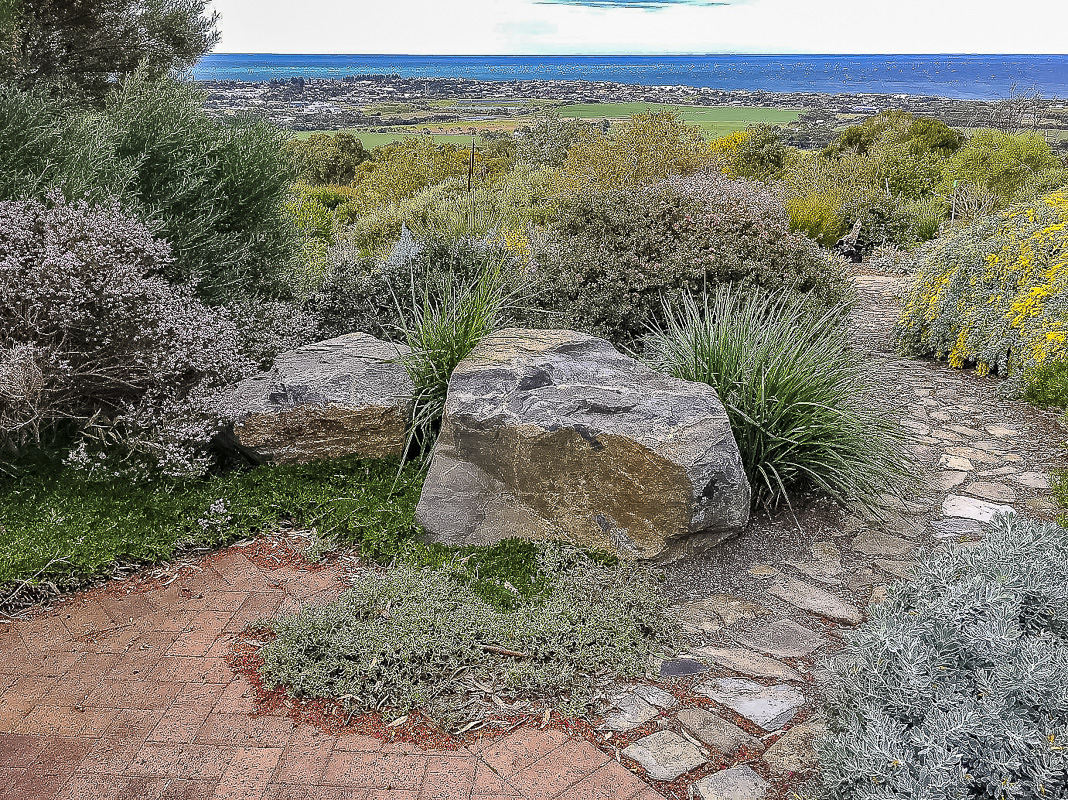
‘Spaces for Living and Enjoyment’
Edna Walling transformed gardening in Australia, shifting its perception from the total domination of nature, to the creation of spaces to be lived in, to be enjoyed, rather than just slaved over. In her work she had a strong vision of manipulation of space and a love of borrowed landscape.
Baghurst garden, SA, image Judy Baghurst

‘Perceiving Garden Space’
Often the best way to understand the concept of space is to look carefully at the plans of great designers. Edna Walling, “By concealing boundaries, and creating defined areas of space within the overall space, you can totally change the perceived size of a garden.”
Diana Snape garden, image Diana Snape
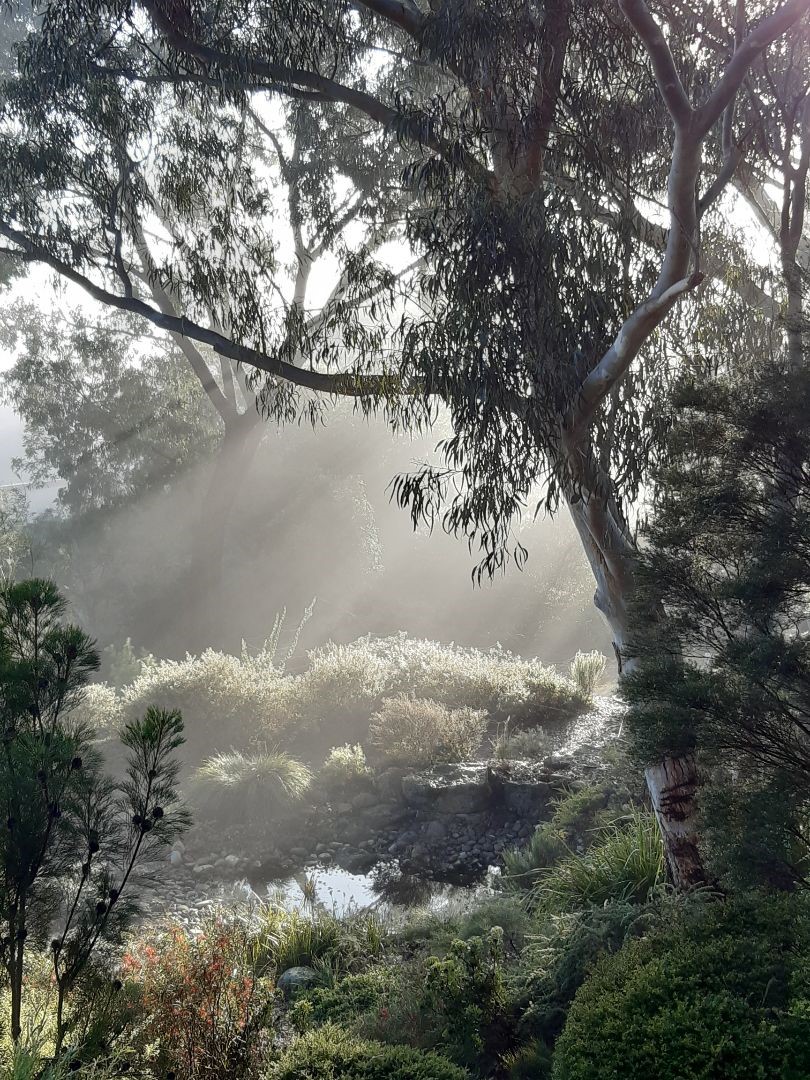
‘Mood, Atmosphere and Tranquillity’
Creating an atmosphere is more important than simply buying and setting out plants. Tranquillity has much to do with the light, the absence of glaringly obvious features, and the interplay between tangible and emotive elements. A space that provides a sense of enclosure, while keeping its boundaries ‘blurred’ and undefined, will create mood and atmosphere invoking our innate love of the natural environment.
Chris Larkin’s garden, image Chris Larkin
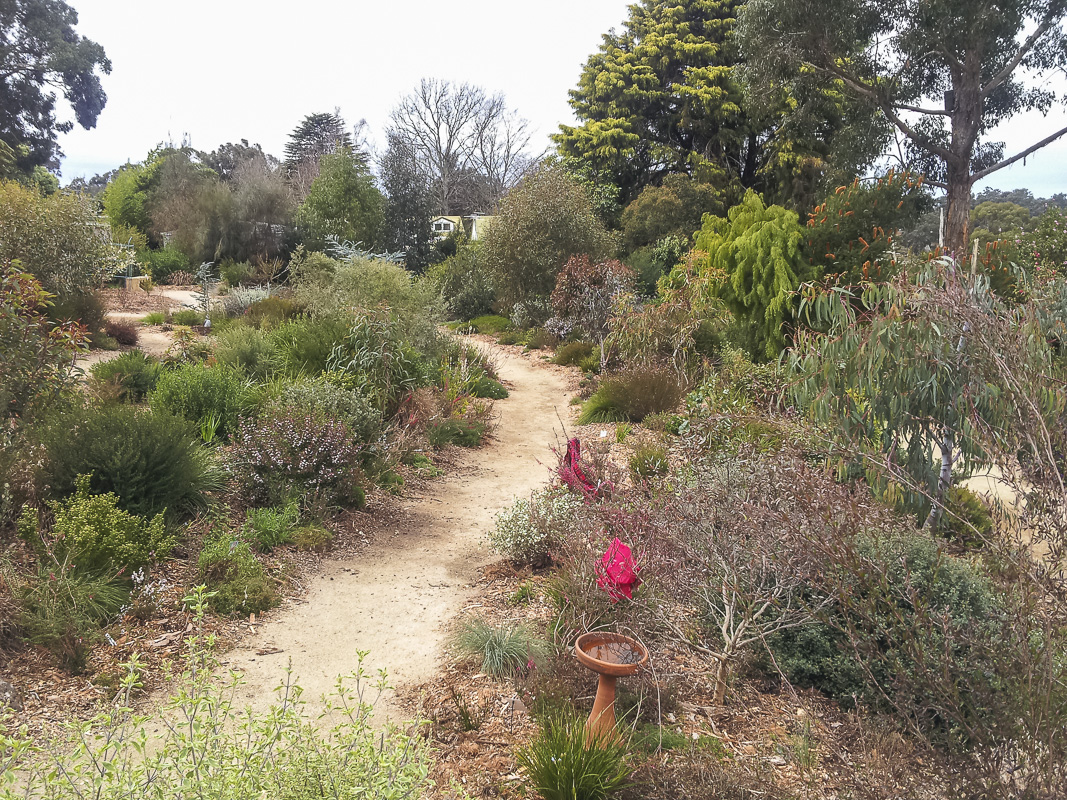
‘Lessons from the Landscape’
Great landscapes or gardens are those which reinforce nature, where a deep understanding of natural topography and ecologies is evident. In Australia the same principle applies. As Philip Cox said, “Although the botanic vocabulary is different, the principles of sky, trees, water and herbage remain the same. It is the delight and rapture, of how they are presented, that makes them great.”
Shirley Carn’s garden, image Nicky Zanen
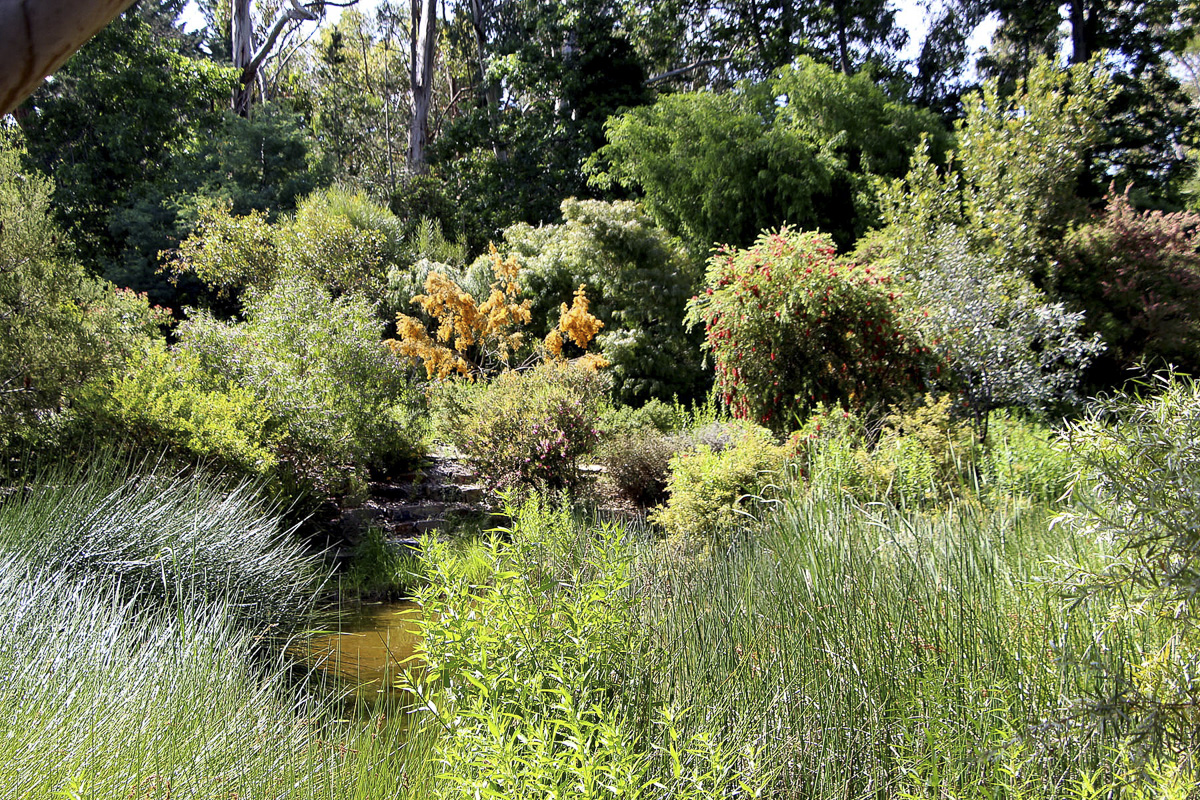
‘Spirit of the Garden’
Gordon Ford was one of the Australian pioneers of the natural style of gardening. It was his deeper engagement with the environment and his sensitivity and respect for place, that made his gardens resonate. “Gardens offer us something beyond our material world. They provide a spiritual component allowing us to participate in the worder and mystery of creation”
Walcott garden, image Ben Walcott
About Trisha Dixon
Trisha Dixon Burkitt is a writer and a photographer. She has a passion for landscape, literature, music, art, architecture, design and history. She leads specialist private tours within Australia and abroad, does photographic commissions and occasionally runs photographic workshops (from her website).
Book details: Trisha Dixon, Spirit of the Garden, 2021, National Library of Australia
ISBN: 9780642279705, ISBN-10: 0642279705
Published: 1st March 2021. Format: Hardcover, Language: English
Publisher: National Library of Australia
 Australian Native Plants Society (Australia)
Australian Native Plants Society (Australia)